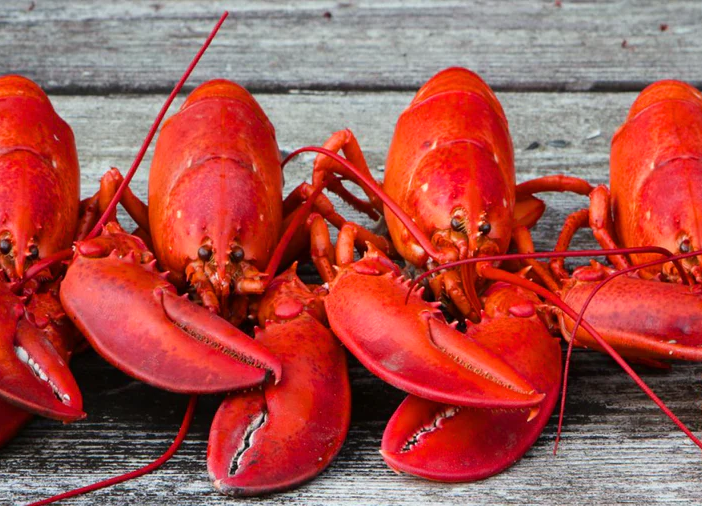
My favorite episode of No Reservations featured the late and wonderful Anthony Bourdain’s first-ever trip to Maine. While he and one of his Maine-native producers cracked open vibrant-red lobsters in a hole-in-the-wall restaurants in Rockland, they observed: “There are a few essential elements you find in the spirit of a Mainer; a humble appreciation of well-crafted things, wit dry enough you may not know when the joke ends and when it begins, and most importantly a love for the land and the sea.”
As the son of a 12th-generation Mainer, I know this to be true.
Native Mainers are unique, unpretentious, often reserved people, and entrepreneurs hailing from Down East are often among the most determined, resilient and resourceful. Lately, many are also committed to pursuing profit with purpose as they scale regionally and nationally. I’m a big fan of Luke’s Lobster in Back Bay and the company’s commitment to sustainable seafood and coastal life and I also greatly admire Sea Bags’ leadership in upcycling local materials for their iconic, durable and well-made products. To any New Englander, these are familiar, inspiring stories of humble founders committed to ventures that express the values of the communities that launched them. And while we’re all enduring another cold Maine or Boston winter, who doesn’t need a little inspiration. Luckily, we can find it in a few new great books.
Tops on my list is Making It In America, Boston-area journalist Rachel Slade’s page-turning chronicle of the lives of Portland-area entrepreneurs Ben and Whitney Waxman and the launch of Maine-based American Roots (americanrootswear.com), an apparel manufacturer using 100% American-sourced materials. Slade is an experienced and insightful storyteller and she details the demise of manufacturing in Maine and the U.S. over the last half century as well as the Waxmans’ grit and determination to create jobs that offer good pay, decent benefits and meaningful connection to community. You’ll find yourself rooting for this company, these people, and the commercial success of these well-crafted hoodies, sweats and T-shirts. I grew up in a union household and I also enjoyed Slade’s focus on the history and impact of U.S. manufacturing policy on local businesses and communities and the importance of workers having a collective voice. More than a few policymakers now seem to have a renewed appreciation for why “Made in America” should matter to all of us.
For innovators in Maine and New England, the environment that surrounds us has long fired the entrepreneurial imagination. In Ice: From Mixed Drinks to Skating Rinks — A Cool History of a Hot Commodity, science journalist Amy Brady shares the storied and multi-faceted 200-plus year history of ice in America. We’ve been “ice obsessed” from the very beginning, Brady observes. Thomas Jefferson built one of the largest icehouses in the country at Monticello, and Washington had an insatiable craving for its then-modern byproduct, ice cream. Ice harvesting and delivery was an arduous, profitable, and reliable business in New England and beyond for more than a hundred years. This is a fun and engaging book and Brady traces the cultural history that brought us “on the rocks” mixed drinks, ice boxes (and then refrigerators and freezers), frozen dinners, ice sculptures, skating rinks, ice hockey, and eventually a chain of convenience stores named for the 7 a.m. to 11 p.m. hours that they were opened to sell ice, so no one would run out while on the road.
Of course, for those traveling, either in search of ice or for more and better opportunities, Maine has a lot to offer. Indeed, since 2020, some 34,000 people have moved to Maine, many of them immigrants, creating an overall influx for an otherwise aging and shrinking population. Now comes the challenge of how best to integrate new residents into a sustainable economy that rewards hard work with a better life. We’ve made progress on this in the past in America, as Pulitzer Prize winner David Leonhardt explains, in his powerful, incisive book Ours Was The Shining Future, and we all have a stake in trying to do it again. His revelatory chapter on U.S. immigration policy over the last century is illuminating and a must-read.
Maine’s new “essential spirit” is emerging. Around the time of Bourdain’s visit there in 2010, the state changed its slogan from “Vacationland” to “The Way Life Should Be,” a nod to more diverse perspectives and aspirations. With companies such as American Root converting grit, heart and ingenuity into profitable businesses, I’m now beginning to understand why.
Read in the Boston Business Journal
Larry Gennari is a business lawyer and chief curator of Authors & Innovators, an annual business book and ideas festival. Watch recent interviews with authors here. Gennari also teaches Project Entrepreneur, a business fundamentals bootcamp for returning citizens, at BC Law School.




